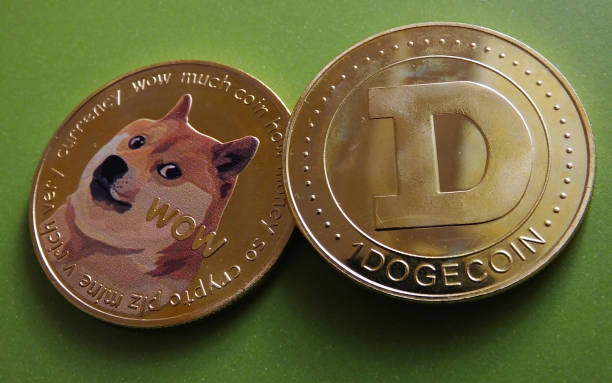In the rapidly evolving landscape of cryptocurrency investments, the pursuit of cutting-edge insights and market opportunities has never been more compelling. Amongst the various altcoins capturing the interest of investors, Dogecoin emerges as a fascinating subject, particularly with recent developments surrounding its potential ETF offerings. Let’s delve into the latest updates in the cryptocurrency world and explore the intriguing possibilities that lie ahead.
21Shares Pursues Dogecoin ETF with Optimistic Amendments
The Advancement of Dogecoin ETF Initiatives
The financial industry witnessed a significant move when 21Shares, a reputable asset management firm, submitted a revised application for a Dogecoin Exchange-Traded Fund (ETF). Initially filed with the U.S. Securities and Exchange Commission (SEC) on April 9, the application marked a strategic effort to enable institutional investors to gain exposure to Dogecoin, a leading meme-based cryptocurrency. In parallel, Nasdaq’s filing to list the ETF initiated the formal review process by the SEC.
Bloomberg analyst Eric Balchunas highlighted in an X post that the recent amendments to the application suggest active dialogue between 21Shares and the SEC, potentially boosting the likelihood of eventual approval. In an environment where regulatory scrutiny is heightened, such developments are crucial.
The SEC’s decision-making process regarding similar ETF applications, including one from Grayscale, has seen delays, with the next major deadlines scheduled for August 19 and October 18. Bitwise’s Dogecoin ETF application faces similar scrutiny, and analysts like James Seyffart anticipate potential approval toward the fourth quarter.
Analyzing the Probability of SEC Approval
According to data from Polymarket, there’s a notable 69% probability that the SEC will approve a Dogecoin ETF by the end of the year, though an imminent decision by July appears unlikely. Analysts Balchunas and Seyffart have provided optimistic estimates, suggesting an 80% chance of approval based on the SEC’s perception of DOGE as a commodity and the existence of a regulated futures market for the coin. The court’s stance in the Grayscale case, equating spot and futures markets, bolsters these predictions.
At this juncture, Dogecoin’s valuation hovers at approximately $0.20, experiencing fluctuations typical of the volatile crypto market.
How does a Dogecoin ETF affect investors?
A Dogecoin ETF can significantly streamline the investment process for institutional and retail investors by offering direct exposure to Dogecoin without the need for direct ownership or complex management of the cryptocurrency itself. This can potentially lead to increased market participation and liquidity.
What are the implications of SEC’s approval for Dogecoin?
The SEC’s approval of a Dogecoin ETF would signify a major step towards mainstream acceptance and regulatory endorsement of the cryptocurrency. This could result in increased investor confidence and potentially amplify the market capitalization of Dogecoin.
Why is the futures market important for ETF approval?
The existence of a regulated futures market is important as it provides a regulated venue for trading, which helps mitigate risks related to market manipulation. This framework is reassuring to regulators, which may increase the likelihood of ETF approval.
By staying informed and utilizing platforms like Finances Zippy for real-time insights, investors can navigate the complexities of cryptocurrency investments with greater confidence. This comprehensive exploration of Dogecoin’s ETF prospects underscores the dynamic interplay of market dynamics and regulatory developments reshaping the investment landscape.

